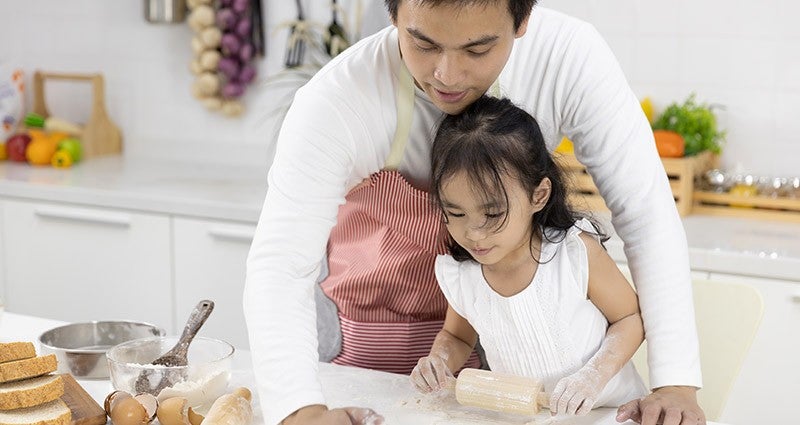The power of trying something new

A mind that is stretched by a new experience can never go back to its old dimensions.
—Oliver Wendell Holmes, Jr.
The new year is not just a time to reflect and reset—it’s also a great time to try something new. New experiences can broaden our perspective and expand us in so many ways. A new experience can be anything from taking a cooking class to traveling to a different country to simply switching up your exercise routine.
Doing something outside your normal routine may feel uncomfortable, but the payoff can be huge! When you try something new, you might:
- Reignite your creativity
- Gain valuable experience or perspective
- Discover something new about yourself
- Learn a skill, whether it’s “useful” or just plain fun
Sometimes, it can be hard to put yourself out there, so go at your own pace. There is no right or wrong way to try something new.
Trying something new can be good for your health
New experiences stimulate the brain to release dopamine, which activates pleasure-and-reward pathways. This can improve mood and motivation.1 Stepping outside your comfort zone may also help you feel braver, which increases confidence and feelings of self-worth.2 Simply contemplating ideas and points of view that you’ve never considered before can develop more flexible ways of thinking. And learning new things as you get older is crucial to keeping your cognitive skills strong.3
Be in the moment
Learning something new requires you to focus on the here and now and increases mindfulness. It’s difficult to think about a bad day at work or a dating mishap when you’re sculpting clay on a pottery wheel for the first time!
Expand your circle
New experiences often involve meeting new people and making connections with those outside your own age group or background. Friendships of all types create a sense of support and can help protect from feelings of loneliness and isolation.2
Forget perfection
Ignore any pressure to be perfect when you’re trying something unfamiliar. Remember, you don’t have to be “good” at something in order to enjoy it! There’s so much value in simply having an experience. Give yourself time and space to explore. The benefits you experience may end up being totally different than you imagined.
Ready to give it a go?
Here are some new experiences you may like to try (and some of them are even free!):
- See a band you know nothing about
- Change your commute: walk, ride your bike, take the bus or train, or carpool to work
- Cook something you’ve never tried (yogurt, kimchi or croissants, anyone?)
- Write or color using your nondominant hand
- Watch a foreign-language film in the theater
- Try a new type of exercise, such as pickleball, ballet, tai chi, chair yoga or aqua cycling
- Donate blood
- Learn a different language
- Write a haiku, limerick or cinquain
- Meal prep while listening to a new podcast
- Hike to a waterfall
- Sign up for a crafting class
- Have some childlike fun: blow bubbles, finger paint, build with Legos or play with Play-Doh
- Ask a librarian to recommend their favorite book
- Visit a state or national park you’ve never been to
- Go to bed and wake up an hour earlier than normal
- Make a birthday card instead of buying one
- Rearrange the furniture in your bedroom, office or home
- Go camping in your backyard
As the new year approaches, it’s important to remember that we don’t need to be limited by our past. We all have the power to reset our expectations for ourselves and our lives. Keep on moving forward and discovering! Teladoc Health is here to help you on the journey to becoming your healthiest.
Looking for a little inspiration? Here are 31 easy ways to put your mental health first.
1https://www.psychologytoday.com/us/blog/understanding-hypnosis/202402/3-activities-to-beneficially-release-dopamine
2https://www.psychologytoday.com/us/blog/the-science-of-stuck/202312/how-new-experiences-can-get-you-unstuck 3https://www.apa.org/news/podcasts/speaking-of-psychology/lifelong-learning
Was this article helpful?
Don't wait! Unlock a healthy, happy new year, at no cost to you.
This content is not intended to be a substitute for professional medical advice, diagnosis or treatment. Always seek the advice of your physician or other qualified health provider with any questions you may have regarding a medical condition.
